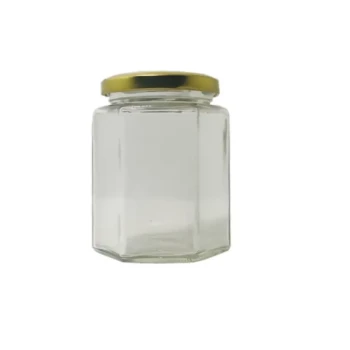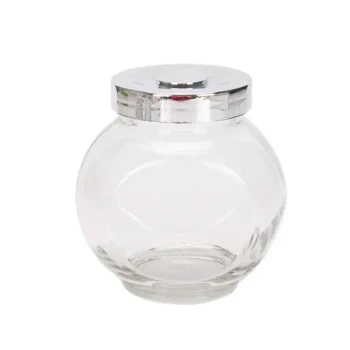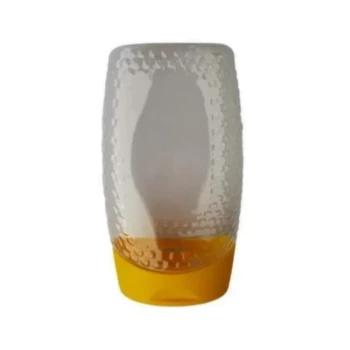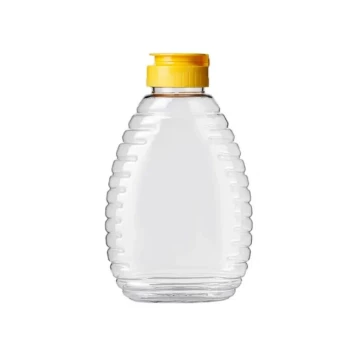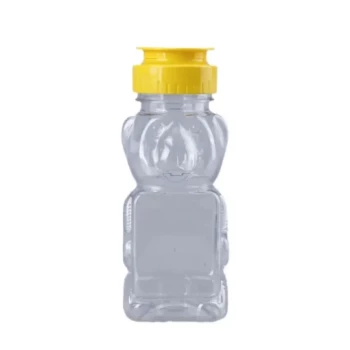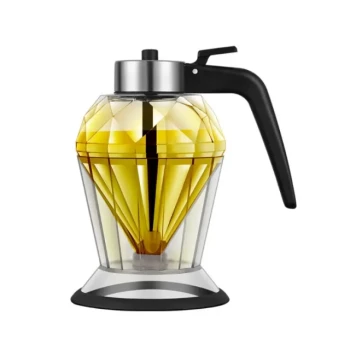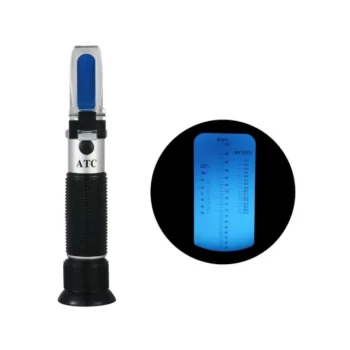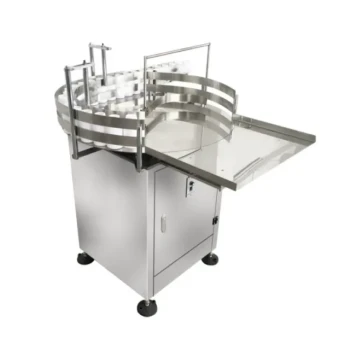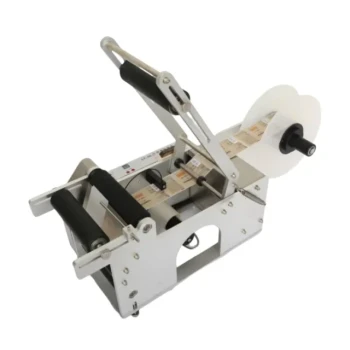In short, a glass jar is preferred for storing honey because it is inert and impermeable. This means it provides a superior barrier against air and moisture, perfectly preserving the honey's distinct flavor, quality, and purity over the long term without any risk of chemical interaction.
While food-grade plastic offers convenience, glass provides an absolute guarantee. It ensures the honey you store will be the exact same honey you taste months or even years later, free from degradation or contamination.
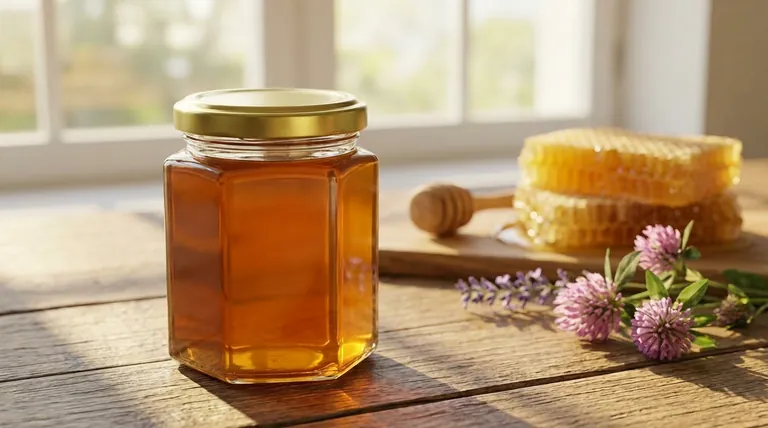
The Superior Qualities of Glass
Honey is a unique natural product, and its preservation depends on protecting it from external elements. Glass is uniquely suited for this task due to its fundamental physical properties.
An Impermeable Barrier to Air
Honey's complex flavors and beneficial compounds can degrade over time with exposure to oxygen.
Glass is non-porous, creating a true hermetic seal that prevents air from seeping in and oxidizing the honey.
A Perfect Seal Against Moisture
Honey is hygroscopic, meaning it naturally absorbs moisture from the air.
If honey's water content rises, it can begin to ferment and spoil. A glass jar with a tight lid effectively blocks ambient moisture, maintaining the honey's natural stability.
Guaranteed Purity of Flavor
Glass is an inert material. It does not react chemically with its contents.
This ensures that the honey's flavor remains pure and untainted, without picking up any "off" tastes that can sometimes be imparted by other materials.
Understanding the Trade-offs: Glass vs. Plastic
While glass is the ideal choice for quality, food-grade plastic is widely used for practical reasons. It's crucial to understand the differences.
The Case for Food-Grade Plastic
Plastic containers (specifically food-grade types like PET or HDPE) have clear advantages in certain contexts.
They are lightweight, shatter-resistant, and more cost-effective to produce and transport, which is why they are common in commercial settings.
The Permeability Problem
The primary drawback of plastic is its permeability. Even food-grade plastic is more porous than glass.
Over time, this allows for a minute exchange of air, which can subtly alter the honey's taste or accelerate crystallization compared to storage in glass.
The Risk of Chemical Interaction
While BPA-free, food-grade plastics are designed to be safe, glass completely eliminates any concern of chemical leaching.
Because glass is inert, there is zero risk of any substance from the container migrating into the honey. It is the purest storage medium.
Materials to Strictly Avoid
Not all containers are suitable for honey. Using the wrong material can quickly ruin the product.
The Danger of Metal
You should never store honey in containers made of metal.
Honey is naturally acidic, and this acidity can react with the metal, causing oxidation. This will contaminate the honey, alter its flavor, and potentially make it unsafe to eat.
Non-Food Grade Plastics
It is critical to ensure any plastic container is explicitly rated as food-grade.
Plastics not designed for food storage can leach harmful chemicals into the honey, posing a significant health risk.
Making the Right Choice for Your Honey
Your storage choice should align with your primary goal, whether that is long-term preservation or short-term convenience.
- If your primary focus is long-term preservation and absolute purity: Always choose a glass jar with a tight-fitting lid.
- If your primary focus is convenience and cost-effectiveness: A high-quality, BPA-free, food-grade plastic container is an adequate choice for shorter-term use.
- If you are concerned about safety and quality: Unconditionally avoid all metal and non-food-grade plastic containers.
Ultimately, choosing the right container is the final step in honoring the natural integrity of your honey.
Summary Table:
| Storage Material | Best For | Key Advantage | Key Drawback |
|---|---|---|---|
| Glass Jar | Long-term preservation, purity | Inert, impermeable, guarantees flavor integrity | Heavier, can break |
| Food-Grade Plastic | Short-term use, convenience | Lightweight, shatter-resistant, cost-effective | Slightly permeable, potential for flavor transfer |
| Metal | Not recommended | - | Reacts with honey's acidity, causes contamination |
| Non-Food-Grade Plastic | Not recommended | - | Can leach harmful chemicals |
Protect the quality of your honey from hive to table. For commercial apiaries and distributors, the right packaging is as crucial as the right equipment. HONESTBEE supplies premium beekeeping supplies and equipment, including storage solutions that ensure your product's integrity. Let us help you choose the best packaging for your needs. Contact our experts today to discuss wholesale options for your operation.
Visual Guide
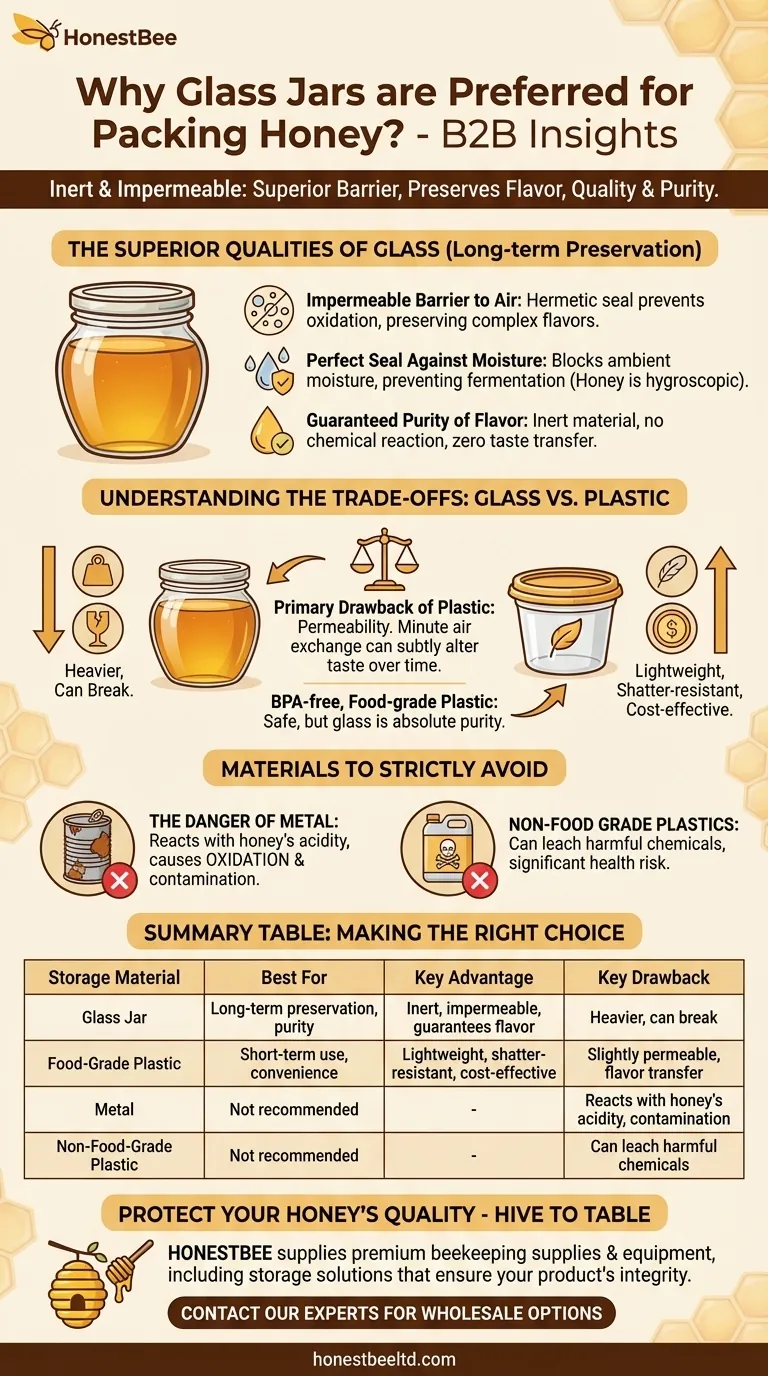
Related Products
- Hexagonal Glass Honey Jars with Metal Lug Caps Elegant Versatile Packaging
- Classic Drum Shaped Glass Honey Jar with Airtight Lid
- Inverted Squeezable Honey Jar with No Drip Flip Top Cap for Easy Pouring
- Squeezable No-Drip Beehive-Shaped Honey Jars with Flip-Top Cap
- Classic Honey Bear Jars with Flip Top Dispensing Cap for Liquid Sweeteners
People Also Ask
- How does a honey weight calculator facilitate the use of multiple bottle sizes? Maximize Your Multi-Product Harvest
- Why is the use of pre-sterilized sealed jars critical in the honey sampling process? Ensure Data Integrity & Accuracy
- When are pouches or tubes used for honey packaging? For Portability & Portion Control
- Why is proper packaging crucial for honey? Protect Quality and Maximize Your Brand Value
- Why are sterile amber glass containers required for stingless bee honey? Ensure Sample Purity & Stability
- Why are amber glass bottles required for stingless bee propolis? Protect Your Bioactive Compounds from Light
- Why are polyethylene bottles preferred for honey sample collection? Ensure Purity & Stability in Honey Analysis
- What are the advantages of using glass jars for honey packaging? Preserve Purity & Elevate Your Brand
